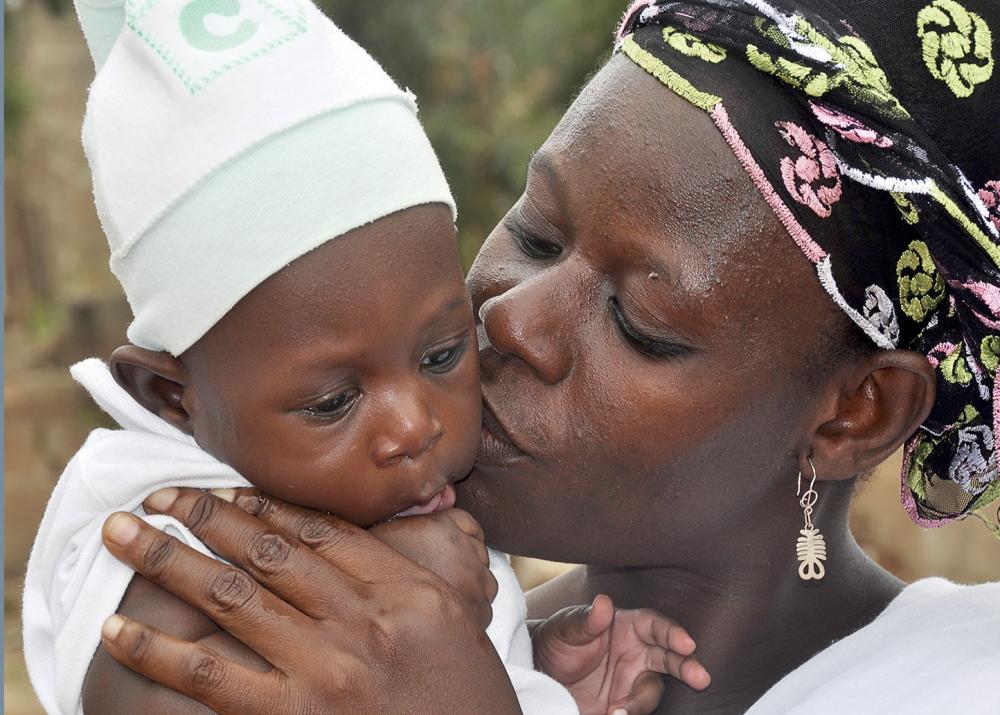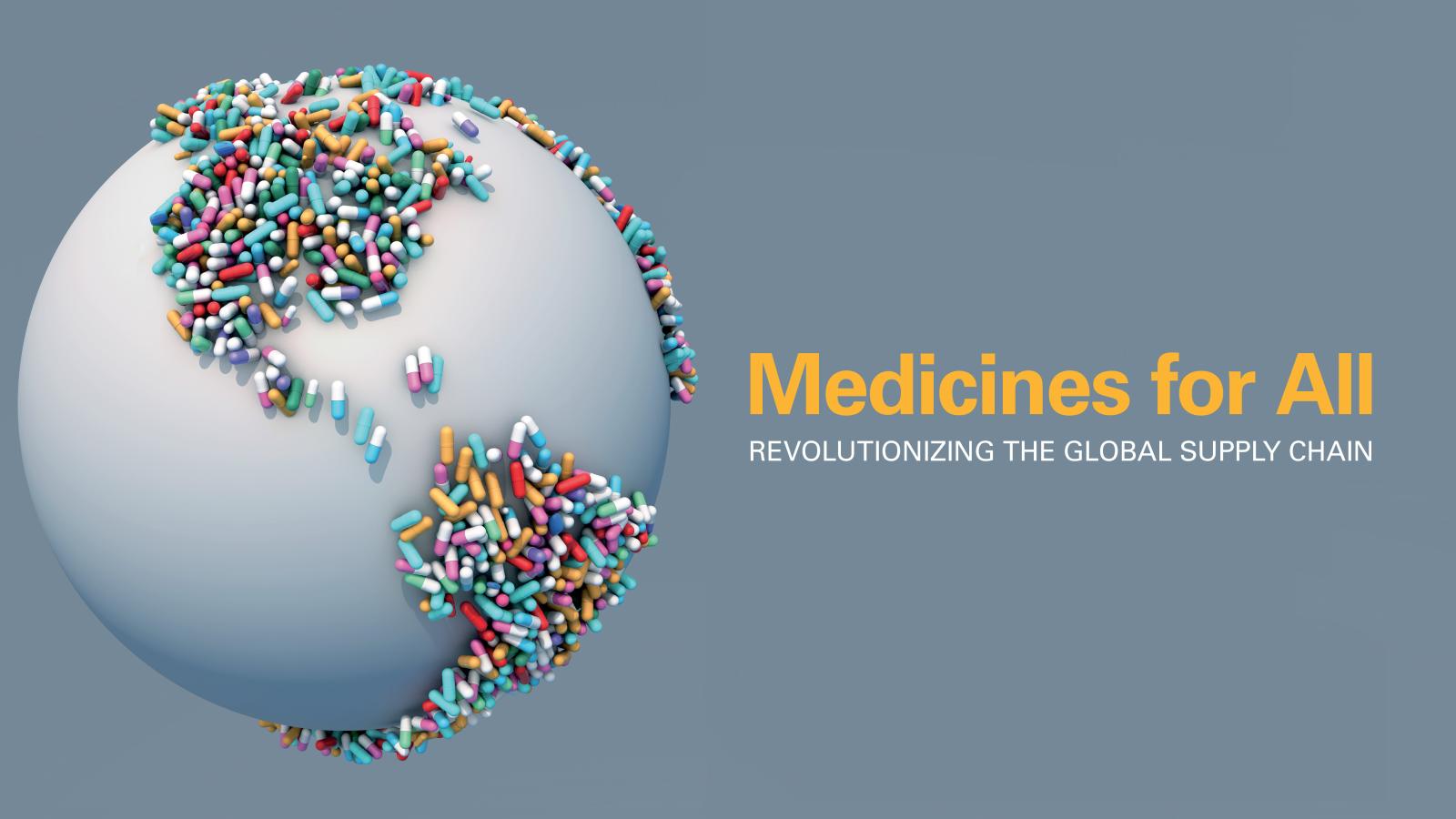
Medicines for All
April 7 is World Health Day. There couldn’t be a more fitting time than right now to think about health on a global scale, and how disease affects the human race without regard for borders. The fights against viruses, bacteria and illness are battles we wage together, and we couldn’t be prouder to share the ways a lab in Richmond is making lifesaving global health drugs more affordable and more available for people around the globe.
That lab is the Medicines for All Institute at Virginia Commonwealth University College of Engineering
We first wrote about Medicines for All in NEXT magazine. Excerpts of that article are shared below, and the full text can be found at www.mcvfoundation.org/next.
***
The supply chain for prescription drugs in the U.S. and around the world is far more vulnerable than many people would like to think.
According to the FDA, more than 100 lifesaving or life-sustaining drugs are in short supply in the U.S. alone right now.
The World Health Organization and others have said this is not just a U.S. problem, but a global one, and the need for drugs is growing. Worldwide, there are more than 37 million people infected with HIV, 219 million malaria cases and 10 million tuberculosis cases.
These issues — domestic and international drug shortages and hundreds of millions facing life-threatening diseases — are enormous and complex. Staring down one, let alone all of them, is daunting to say the least. But the mantra of a lab in Richmond at Virginia Commonwealth University perfectly summarizes the way its students, faculty and staff have begun to approach these global challenges.
Their creed, “Discovery is seeing what everybody else has seen, and thinking what nobody else has thought,” is an Albert Szent-Györgyi quote often shared by Frank Gupton, Ph.D., the Floyd D. Gottwald Professor and Chair of the Department of Chemical and Life Science Engineering in the VCU College of Engineering.
Dr. Gupton, a former pharmaceutical industry executive, leads VCU’s Medicines for All Institute. The institute examines commercial drug manufacturing processes to find ways to substitute lower-cost raw materials, simplify operations and increase yields. It then transfers its findings to manufacturers and suppliers that can reduce consumer prices and establish production closer to patients, where it previously wasn’t economical to do so.

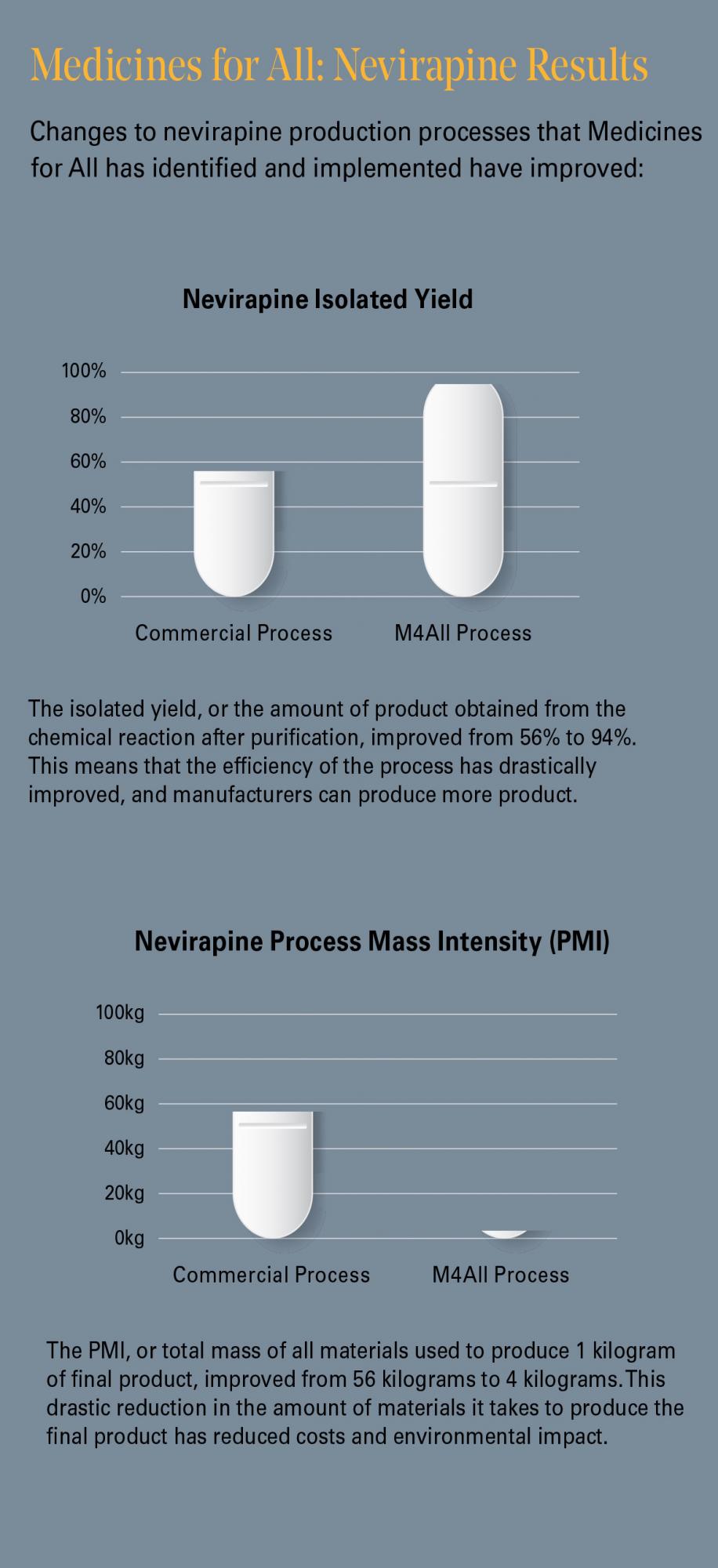 One of the institute’s first projects examined nevirapine, a widely prescribed treatment for HIV that is on the World Health Organization List of Essential Medicines. Medicines for All pinpointed inefficient chemical conditions and production processes related to the drug, then streamlined routes to the materials that come together to create its active pharmaceutical ingredient (API). They reduced the medicine’s production cost and improved its availability to patients.
One of the institute’s first projects examined nevirapine, a widely prescribed treatment for HIV that is on the World Health Organization List of Essential Medicines. Medicines for All pinpointed inefficient chemical conditions and production processes related to the drug, then streamlined routes to the materials that come together to create its active pharmaceutical ingredient (API). They reduced the medicine’s production cost and improved its availability to patients.
Introduction of extra medication means better access for people who need it in order to lead healthier lives. Anita Deshpande, who previously worked for CHAI, is the director of market engagement at the Medicines for All Institute. “I have spent time in HIV clinics across Africa, in India and in the Caribbean,” she said. “It has been clear in all of these places that securing the supply chain for these lifesaving medications will enhance the lives of all patients, including mothers, young men and adolescents. These are the drugs that allow patients to live fairly normal lives. Making sure everybody has access to them gives people an opportunity to raise their children and see those children live HIV-free lives.”
Dr. Gupton and his team have only published their nevirapine results, but they are working through manuscripts on five other medicines. In all the cases, they’re finding what Dr. Gupton calls “low-hanging fruit,” similar to what they found in the nevirapine process that is allowing them to reduce both cost and the amount of materials needed for production. These changes will lead to an estimated consumer price reduction of approximately 10% on each therapy, bringing the potential savings across several HIV regimens around the globe to almost $90 million annually.
WHAT’S NEXT?
Next year, Dr. Gupton and his team will begin working on tuberculosis and malaria drugs. “It made perfect sense to do it this way,” Dr. Gupton said. “We started with these high-volume HIV drugs. If you have a good return on investment with them, that allows you to baseload your cost here at the institute so you can now work on TB and malaria. The research on HIV drugs basically paid startup costs for moving into the new diseases. We are extremely well-equipped. The Gates Foundation has enabled us to build up this infrastructure, allowing us to look at these other drugs much more cost effectively.”
Important Partnerships on the MCV Campus
VCU Massey Cancer Center
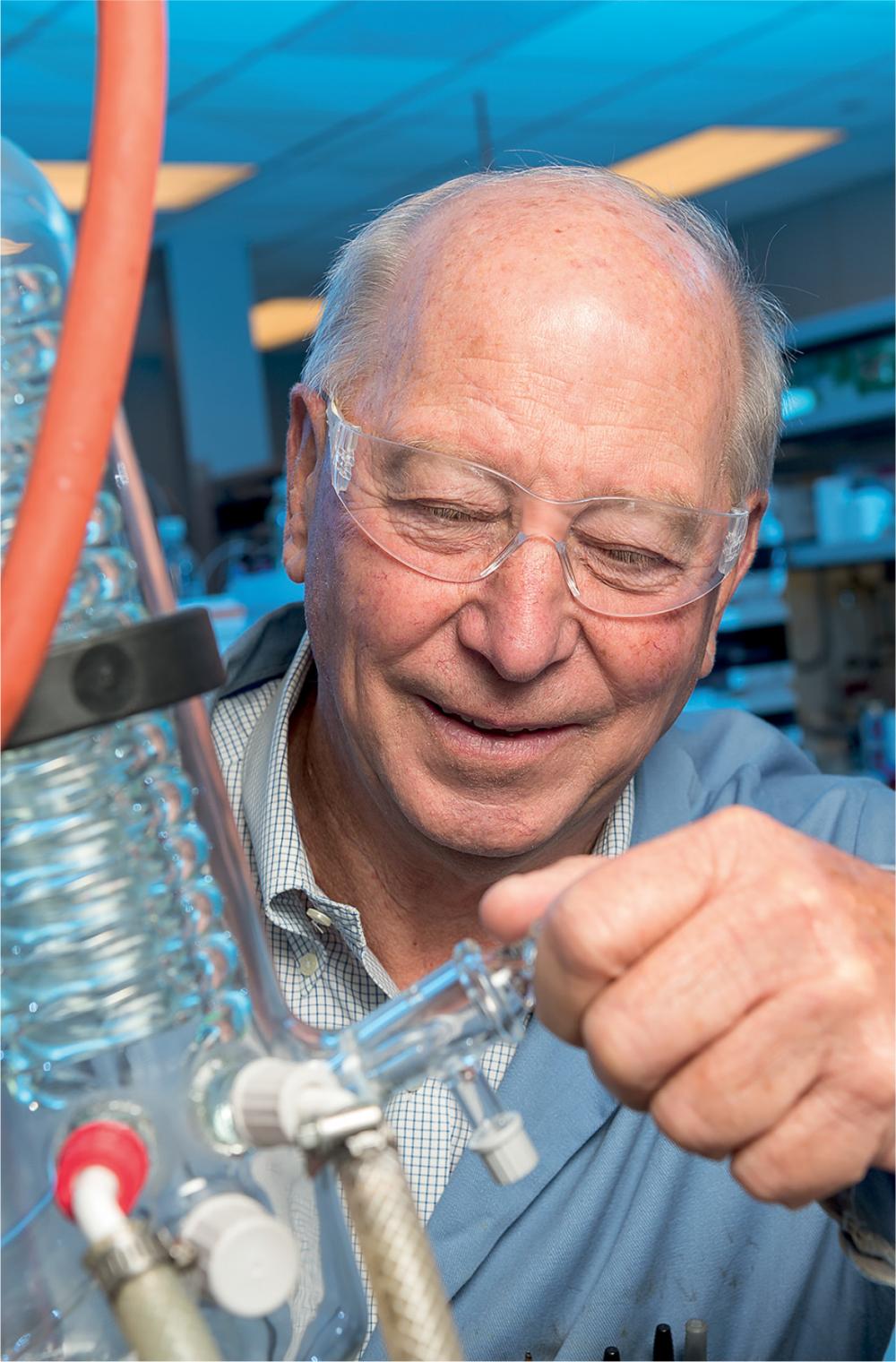
The NCI-designated VCU Massey Cancer Center is in the top 4% of cancer centers nationally. It produces groundbreaking research, training and the best possible care. One barrier to the center moving into an even more elite designation is its access, for research purposes, to the absolute newest drugs that are still in early trial phases.
“The pharmaceutical companies that are developing these drugs want to control the use of them in both preclinical research and clinical trials, which is understandable,” Dr. Gupton said. “But when Massey mentioned this challenge to me, I said, ‘They publish the structures of the compounds, so there’s no reason why we can’t make them for you.’”
The Drug Price Competition and Patent Term Restoration Act of 1984, also known as the Hatch-Waxman Amendments, allows organizations to produce a drug that is under patent if that organization isn’t planning to sell it. “So, we set up a lab here, and we’ve been making the drugs for Massey for a little less than a year,” Dr. Gupton said.
“The partnership with Dr. Gupton’s Molecules for Medicine program opened a whole new avenue for Massey Cancer Center investigators to move laboratory discoveries forward to clinical trials,” said Gordon Ginder, M.D., former director of VCU Massey Cancer Center and Lipman Chair in Oncology. “We believe that growing this partnership will accelerate translational research, and with it, our ability to bring innovative new treatments to patients with cancer.”
VCU School of Pharmacy
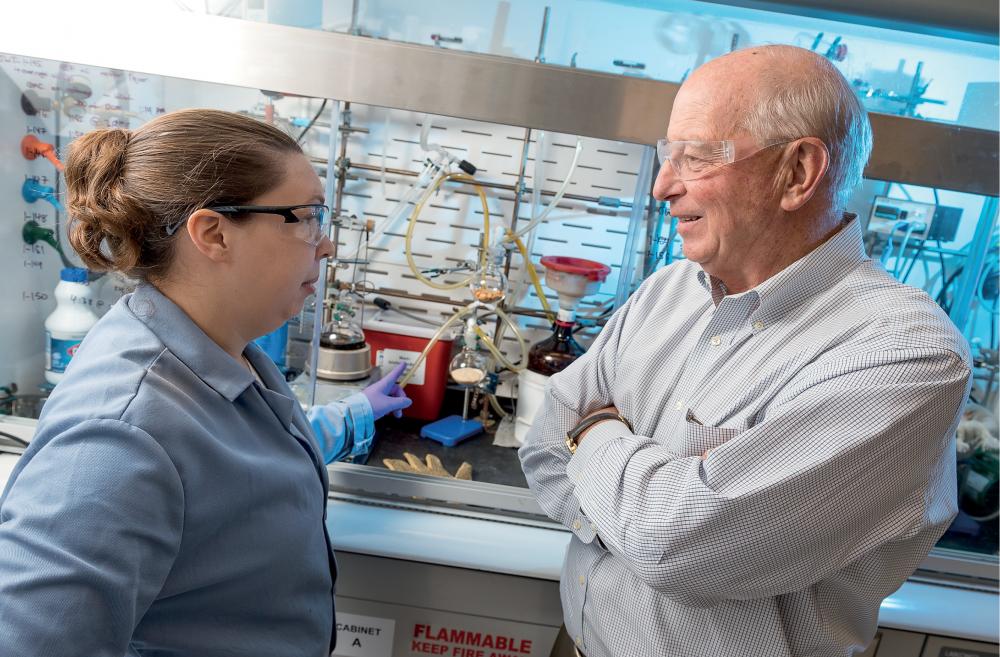
In 2019, the State Council of Higher Education for Virginia approved the nation’s first Ph.D. program in pharmaceutical engineering. The doctoral program, a collaboration between VCU’s School of Pharmacy and College of Engineering, will focus on research and training students in areas of drug product development, such as continuous manufacturing and drug-containing nanomaterials.
“We have a lot of people from the pharmaceutical industry working in the space with Medicines for All, and other researchers throughout the College of Engineering who are working with various drugs and therapies, so we can coalesce all of that activity with the School of Pharmacy to create something meaningful and unique,” Dr. Gupton said. “People have been compartmentalized in their skill sets in this industry. You have organic chemists who are focused on the synthesis and drug discovery part. Then someone must formulate the product. What if you had somebody who understood what those requirements were downstream who could interface between drug discovery and drug development? That’s where we think the sweet spot is for this degree.”
“VCU has always prepared professionals and scientists for the healthcare needs of the future, and this new collaborative Ph.D. program supports that mission,” said Joseph T. DiPiro, Pharm.D., dean of the VCU School of Pharmacy and the Archie O. McCalley Chair. “It will bring together students and researchers from the two disciplines to solve problems that will have visible and important effects on health.”
It is through this partnership that the university is teaching students, hopefully a new generation of pharmaceutical industry experts, to take Dr. Gupton’s adopted mantra about looking at familiar things with a fresh perspective into the rest of the pharmaceutical and global health world.
Barbara D. Boyan, Ph.D., the Alice T. and William H. Goodwin Jr. Dean of the College of Engineering, said, “With the creation of the pharmaceutical engineering Ph.D. program, VCU will be a national leader in the education of the pharmaceutical workforce of today and innovators leading future developments. The program will address the growing need for a new generation of researchers trained in cross-disciplinary and interdisciplinary science who recognize the need for a team-based approach to solving challenges related to the design and manufacturing of pharmaceutical products.”
“Our charter here is to train students to think differently — to use common sense,” Dr. Gupton said. “The question is how do we change the industry culture to achieve those objectives both in the training of our academicians here and when they go into the world to start implementing these key principles in the marketplace.”
To learn more about the School of Pharmacy and its work with Medicines for All, contact Louie Correa, senior director of development, at 804-828-3016 or lacorrea@vcu.edu. To learn more about Massey Cancer Center’s partnership with Medicines for All, contact the Massey Development Office at 804-828-1450.
